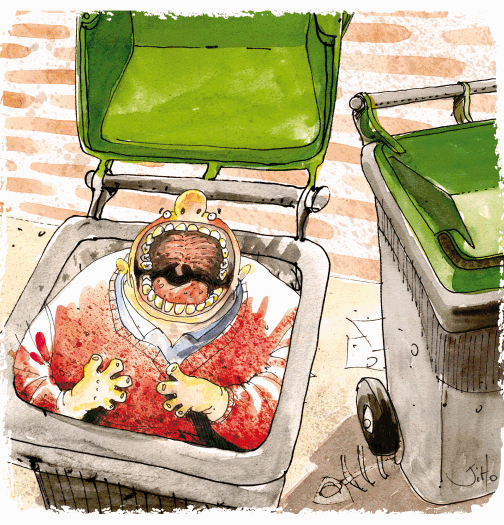Search
Recent comments
- obsession....
12 min 58 sec ago - forever....
38 min 19 sec ago - no recall...
1 hour 45 min ago - whacked bushmaster....
3 hours 53 min ago - american delusions....
7 hours 45 min ago - weaponry....
8 hours 43 min ago - REVEALED: THE PENTAGON’S
9 hours 4 sec ago - making a motza....
9 hours 16 min ago - .... אי שפיות יהודית
9 hours 35 min ago - genocide.....
10 hours 3 min ago
Democracy Links
Member's Off-site Blogs
news from the feedlot .....

Much of what lines supermarket aisles is not food. It's merely foodlike, and it's making us sick.
Why would anyone need to write a book called In Defense of Food? If we can afford it and can get our hands on it, we eat food several times a day. Or do we?
According to Michael Pollan, most of what Americans consume isn't food. He calls it "edible foodlike substances." He also says that the way we consume it is not really eating. It's something we do pretty unconsciously as we work or drive or watch TV.
We all know about the US epidemic of obesity and diabetes over the past 25 years, top of the steady rise of chronic diseases over the past 100. Paradoxically, this happens just as Americans and the food industry are ever more aware of nutrition. What's going on here?
Pollan claims that in the Western Diet, good old food has been replaced by nutrients, mom's good advice by nutritional experts, common sense by confusion, and for most, a relatively good diet by a bad and dangerous one. The book in which he makes all these claims and advises us simply to "Eat Food. Not too much. Mostly plants," has topped the New York Times best-seller list.- By John Richardson at 3 Apr 2008 - 10:01pm
- John Richardson's blog
- Login or register to post comments
when foxes guard henhouses .....
"Mary had a little lamb
And when she saw it sicken
She shipped it off to Packingtown
And now it's labeled chicken."
That little ditty famously summarized the message of "The Jungle," Upton Sinclair's 1906 exposé of conditions in America's meat-packing industry. Sinclair's muckraking helped Theodore Roosevelt pass the Pure Food and Drug Act and the Meat Inspection Act - and for most of the next century, Americans trusted government inspectors to keep their food safe.
Lately, however, there always seems to be at least one food-safety crisis in the headlines - tainted spinach, poisonous peanut butter and, currently, the attack of the killer tomatoes. The declining credibility of U.S. food regulation has even led to a foreign-policy crisis: there have been mass demonstrations in South Korea protesting the pro-American prime minister's decision to allow imports of U.S. beef, banned after mad cow disease was detected in 2003.
Bad Cow Disease